Landis, who was stripped of his 2006 Tour de France win after failing a doping test, had spent four years and more than $1 million protesting his innocence before suddenly deciding to come clean.
Disgraced Tour de France winner Floyd Landis has confessed to using performance-enhancing drugs and accused some of the biggest names in the sport, including Lance Armstrong, of also cheating.
Landis, who was stripped of his 2006 Tour win after failing a doping test, had spent four years and more than $1 million protesting his innocence before suddenly deciding to come clean today.
"I want to clear my conscience," Landis told ESPN after making his confession in a series of emails. "I don't want to be part of the problem any more."
In the emails, which Reuters has seen and Landis said were also distributed to USA Cycling and the International Cycling Union (UCI), the American provided details of a variety of drugs he had used during his career and who supplied them to him.
He admitted using EPO, human growth hormone, testosterone, blood transfusions, and even female hormones from 2002, when he joined the US postal team.
The 34-year-old said he witnessed some if his teammates, including Armstrong, seven-time winner of the Tour de France, also use illegal drugs, including once on a team bus during a race.
"There are many many more details that I have in diaries and am in the process of writing into an intelligible story," Landis wrote in the emails.
Accusations against Armstrong are nothing new. He has never failed a dope test and has always denied taking banned substances.
"With regard to the specific allegations, the specific claims, they are not even worth getting in to," Armstrong told reporters at the Tour of California.
"I'm not going to waste your time or my time. I think history speaks for itself here. We've all followed this case for the last four years..."
The astonishing confession and claims by Landis triggered a swift response from senior doping and cycling officers.
"We are very interested in learning more about this matter and we will liaise with the United States Anti-Doping Agency (USADA) and any other authority with appropriate jurisdiction to get to the heart of the issues raised," World Anti-Doping Agency (WADA) president John Fahey said in a statement.
UCI president Pat McQuaid questioned Landis's credibility.
"After going through two or three court cases denying everything, the question is what credibility does he have?" McQuaid told Reuters.
In his emails, Landis accused officials from the sport's governing body of covering up a positive test from Armstrong during the 2002 Tour of Switzerland — a race the UCI said he did not compete in.
"Deeply shocked by the gravity of this statement, which considerably impinges on the honour of all persons who have dedicated themselves to the fight against doping, the UCI wishes to clearly state that it has never changed or concealed a positive test result," it said in a statement.
"Finally, the UCI wishes to make clear that it will undertake all necessary measures to defend its honour as well as the honour of all its executives who have been unfairly accused by Mr Floyd Landis."
Landis was stripped of his Tour win after returning an abnormal testosterone-epitestosterone ratio.
He denied any wrongdoing and fought a long and expensive legal case, which he eventually lost, and was subsequently banned for two years.
His suspension ended last year, but in February a French judge issued an arrest warrant against him for suspected hacking into an anti-doping laboratory computer.
French anti-doping agency head Pierre Bordry said the judge believed Landis wanted to prove that the laboratory where his samples were tested was wrong.
In his emails, Landis maintained the testers got it wrong, arguing he had used human growth hormone and not the synthetic testosterone he tested positive for.
Phonak team owner Andy Rihs, for whom Landis rode in 2006, denied the American's claim that he was aware the rider was doped.
"His present statements, according to which I was informed, are lies," Rihs said in a statement. "It probably is a last tragic attempt of Landis to once again gain public recognition whilst step by step he has lost this in the last few years. It is sad to have to see such a thing."
Jim Ochowicz, president of the BMC Racing Team, also issued a denial after his team and one of his riders, George Hincapie, were named by Landis.
"These allegations are not true, absolutely unfounded and unproven. This is disappointing to anyone who works in the sport or is a fan of the sport," Ochowicz said.
![submenu-img]() Taarak Mehta actor Gurucharan Singh operated more than 10 bank accounts: Report
Taarak Mehta actor Gurucharan Singh operated more than 10 bank accounts: Report![submenu-img]() Ambani, Adani, Tata will move to Dubai if…: Economist shares insights on inheritance tax
Ambani, Adani, Tata will move to Dubai if…: Economist shares insights on inheritance tax![submenu-img]() Cargo plane lands without front wheels in terrifying viral video, watch
Cargo plane lands without front wheels in terrifying viral video, watch![submenu-img]() Akshaya Tritiya 2024: Know date, timings, puja vidhi and significance
Akshaya Tritiya 2024: Know date, timings, puja vidhi and significance ![submenu-img]() Aavesham OTT release: When, where to watch Fahadh Faasil's blockbuster action comedy
Aavesham OTT release: When, where to watch Fahadh Faasil's blockbuster action comedy![submenu-img]() DNA Verified: Is CAA an anti-Muslim law? Centre terms news report as 'misleading'
DNA Verified: Is CAA an anti-Muslim law? Centre terms news report as 'misleading'![submenu-img]() DNA Verified: Lok Sabha Elections 2024 to be held on April 19? Know truth behind viral message
DNA Verified: Lok Sabha Elections 2024 to be held on April 19? Know truth behind viral message![submenu-img]() DNA Verified: Modi govt giving students free laptops under 'One Student One Laptop' scheme? Know truth here
DNA Verified: Modi govt giving students free laptops under 'One Student One Laptop' scheme? Know truth here![submenu-img]() DNA Verified: Shah Rukh Khan denies reports of his role in release of India's naval officers from Qatar
DNA Verified: Shah Rukh Khan denies reports of his role in release of India's naval officers from Qatar![submenu-img]() DNA Verified: Is govt providing Rs 1.6 lakh benefit to girls under PM Ladli Laxmi Yojana? Know truth
DNA Verified: Is govt providing Rs 1.6 lakh benefit to girls under PM Ladli Laxmi Yojana? Know truth![submenu-img]() Alia Bhatt wears elegant saree made by 163 people over 1965 hours to Met Gala 2024, fans call her ‘princess Jasmine’
Alia Bhatt wears elegant saree made by 163 people over 1965 hours to Met Gala 2024, fans call her ‘princess Jasmine’![submenu-img]() Jr NTR-Lakshmi Pranathi's 13th wedding anniversary: Here's how strangers became soulmates
Jr NTR-Lakshmi Pranathi's 13th wedding anniversary: Here's how strangers became soulmates![submenu-img]() Streaming This Week: Heeramandi, Shaitaan, Manjummel Boys, latest OTT releases to binge-watch
Streaming This Week: Heeramandi, Shaitaan, Manjummel Boys, latest OTT releases to binge-watch![submenu-img]() Remember Ayesha Kapur? Michelle from Black, here's how actress, nutrition coach, entrepreneur looks after 19 years
Remember Ayesha Kapur? Michelle from Black, here's how actress, nutrition coach, entrepreneur looks after 19 years![submenu-img]() Remember Heyy Babyy's cute 'Angel' Juanna Sanghvi? 20 year-old looks unrecognisable now, fans say 'her comeback will...'
Remember Heyy Babyy's cute 'Angel' Juanna Sanghvi? 20 year-old looks unrecognisable now, fans say 'her comeback will...'![submenu-img]() Haryana Political Crisis: Will 3 independent MLAs support withdrawal impact the present Nayab Saini led-BJP government?
Haryana Political Crisis: Will 3 independent MLAs support withdrawal impact the present Nayab Saini led-BJP government?![submenu-img]() DNA Explainer: Why Harvey Weinstein's rape conviction was overturned, will beleaguered Hollywood mogul get out of jail?
DNA Explainer: Why Harvey Weinstein's rape conviction was overturned, will beleaguered Hollywood mogul get out of jail?![submenu-img]() What is inheritance tax?
What is inheritance tax?![submenu-img]() DNA Explainer: What is cloud seeding which is blamed for wreaking havoc in Dubai?
DNA Explainer: What is cloud seeding which is blamed for wreaking havoc in Dubai?![submenu-img]() DNA Explainer: What is Israel's Arrow-3 defence system used to intercept Iran's missile attack?
DNA Explainer: What is Israel's Arrow-3 defence system used to intercept Iran's missile attack?![submenu-img]() Taarak Mehta actor Gurucharan Singh operated more than 10 bank accounts: Report
Taarak Mehta actor Gurucharan Singh operated more than 10 bank accounts: Report![submenu-img]() Aavesham OTT release: When, where to watch Fahadh Faasil's blockbuster action comedy
Aavesham OTT release: When, where to watch Fahadh Faasil's blockbuster action comedy![submenu-img]() Sonakshi Sinha slams trolls for crticising Heeramandi while praising Bridgerton: ‘Bhansali is selling you a…’
Sonakshi Sinha slams trolls for crticising Heeramandi while praising Bridgerton: ‘Bhansali is selling you a…’![submenu-img]() Sanjeev Jha reveals why he cast Chandan Roy in his upcoming film Tirichh: 'He is just like a rubber' | Exclusive
Sanjeev Jha reveals why he cast Chandan Roy in his upcoming film Tirichh: 'He is just like a rubber' | Exclusive![submenu-img]() This actress was forced to work in B-grade films, called ‘ugly duckling’; became superstar, now owns Rs 100 crore house
This actress was forced to work in B-grade films, called ‘ugly duckling’; became superstar, now owns Rs 100 crore house![submenu-img]() IPL 2024: Mumbai Indians knocked out after Sunrisers Hyderabad beat Lucknow Super Giants by 10 wickets
IPL 2024: Mumbai Indians knocked out after Sunrisers Hyderabad beat Lucknow Super Giants by 10 wickets![submenu-img]() PBKS vs RCB IPL 2024: Predicted playing XI, live streaming details, weather and pitch report
PBKS vs RCB IPL 2024: Predicted playing XI, live streaming details, weather and pitch report![submenu-img]() PBKS vs RCB IPL 2024 Dream11 prediction: Fantasy cricket tips for Punjab Kings vs Royal Challengers Bengaluru
PBKS vs RCB IPL 2024 Dream11 prediction: Fantasy cricket tips for Punjab Kings vs Royal Challengers Bengaluru![submenu-img]() Watch: Bangladesh cricketer Shakib Al Hassan grabs fan requesting selfie by his neck, video goes viral
Watch: Bangladesh cricketer Shakib Al Hassan grabs fan requesting selfie by his neck, video goes viral![submenu-img]() IPL 2024 Points table, Orange and Purple Cap list after Delhi Capitals beat Rajasthan Royals by 20 runs
IPL 2024 Points table, Orange and Purple Cap list after Delhi Capitals beat Rajasthan Royals by 20 runs![submenu-img]() Cargo plane lands without front wheels in terrifying viral video, watch
Cargo plane lands without front wheels in terrifying viral video, watch![submenu-img]() Tiger cub mimics its mother in viral video, internet can't help but go aww
Tiger cub mimics its mother in viral video, internet can't help but go aww![submenu-img]() Octopus crawls across dining table in viral video, internet is shocked
Octopus crawls across dining table in viral video, internet is shocked![submenu-img]() This Rs 917 crore high-speed rail bridge took 9 years to build, but it leads nowhere, know why
This Rs 917 crore high-speed rail bridge took 9 years to build, but it leads nowhere, know why ![submenu-img]() Not Alia Bhatt or Isha Ambani but this Indian CEO made heads turn at Met Gala 2024, she is from...
Not Alia Bhatt or Isha Ambani but this Indian CEO made heads turn at Met Gala 2024, she is from...
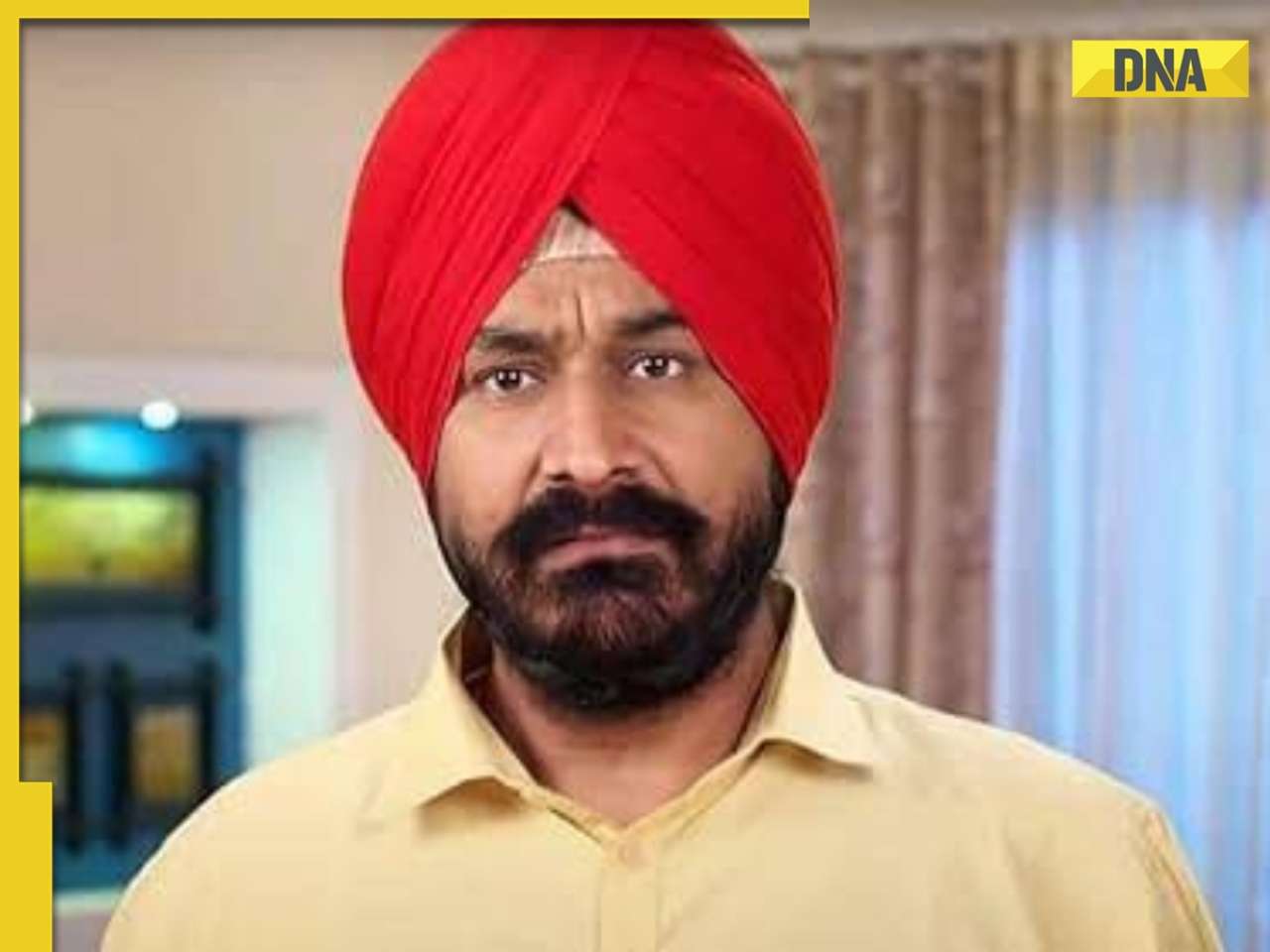
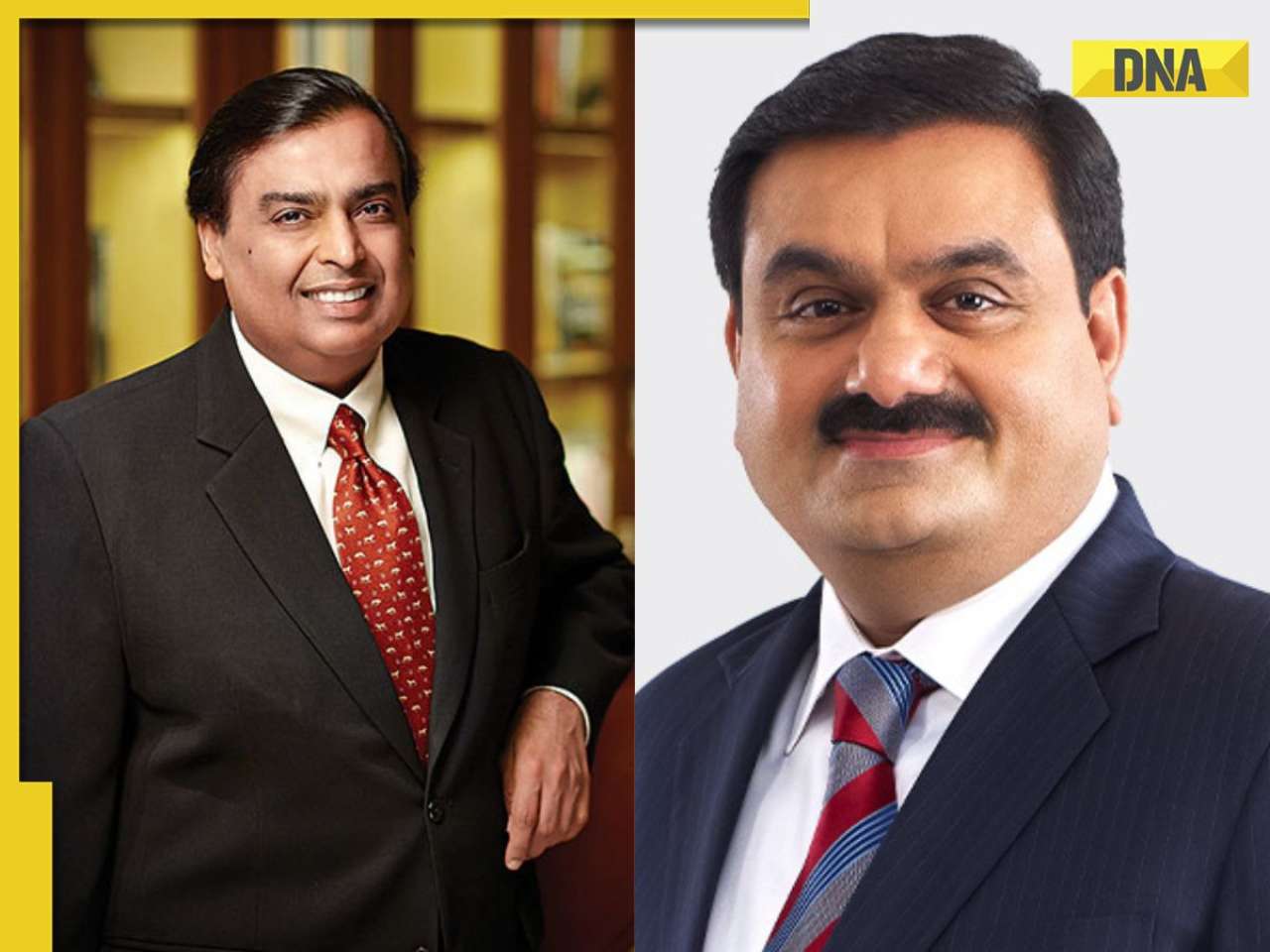
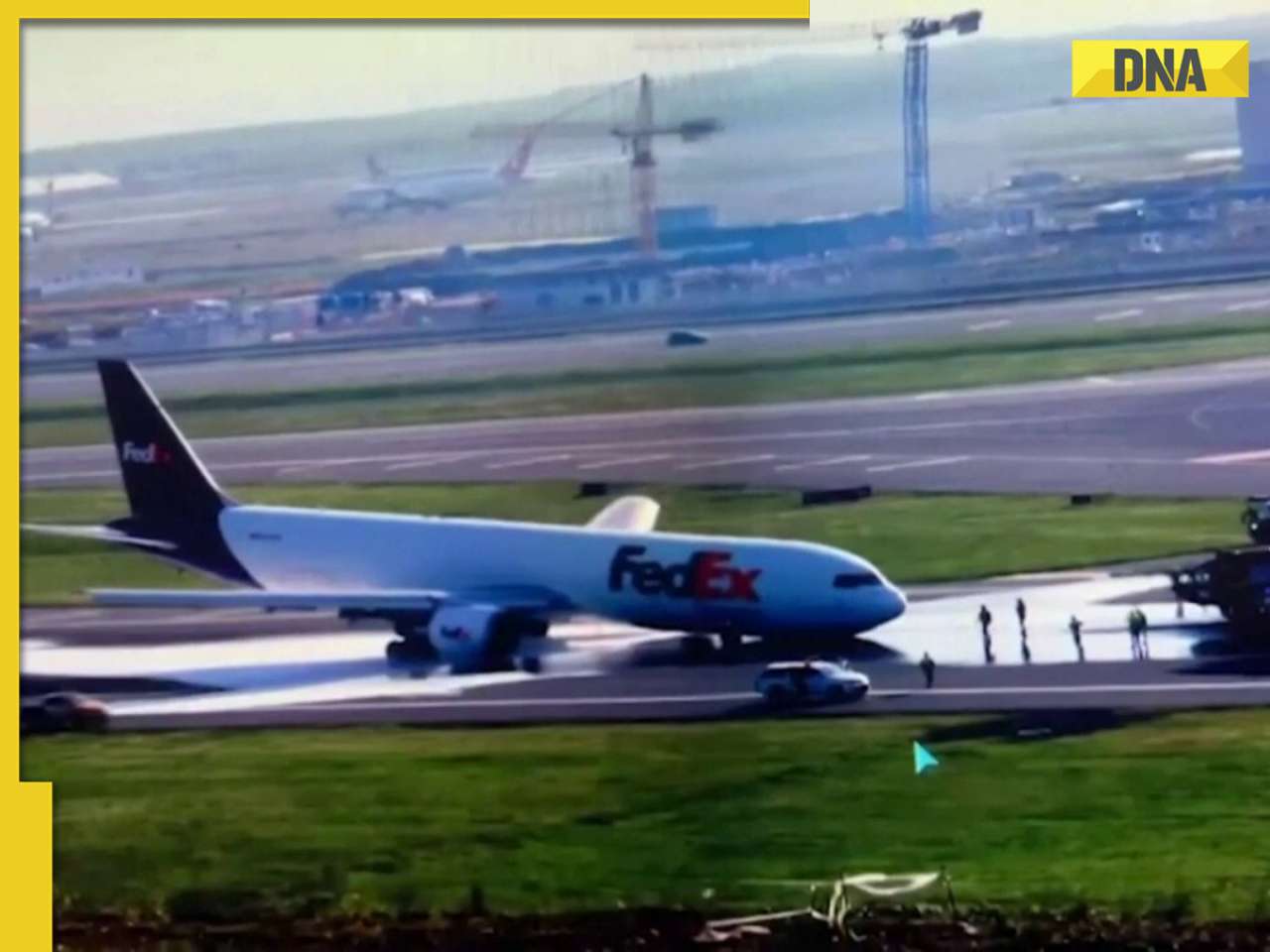

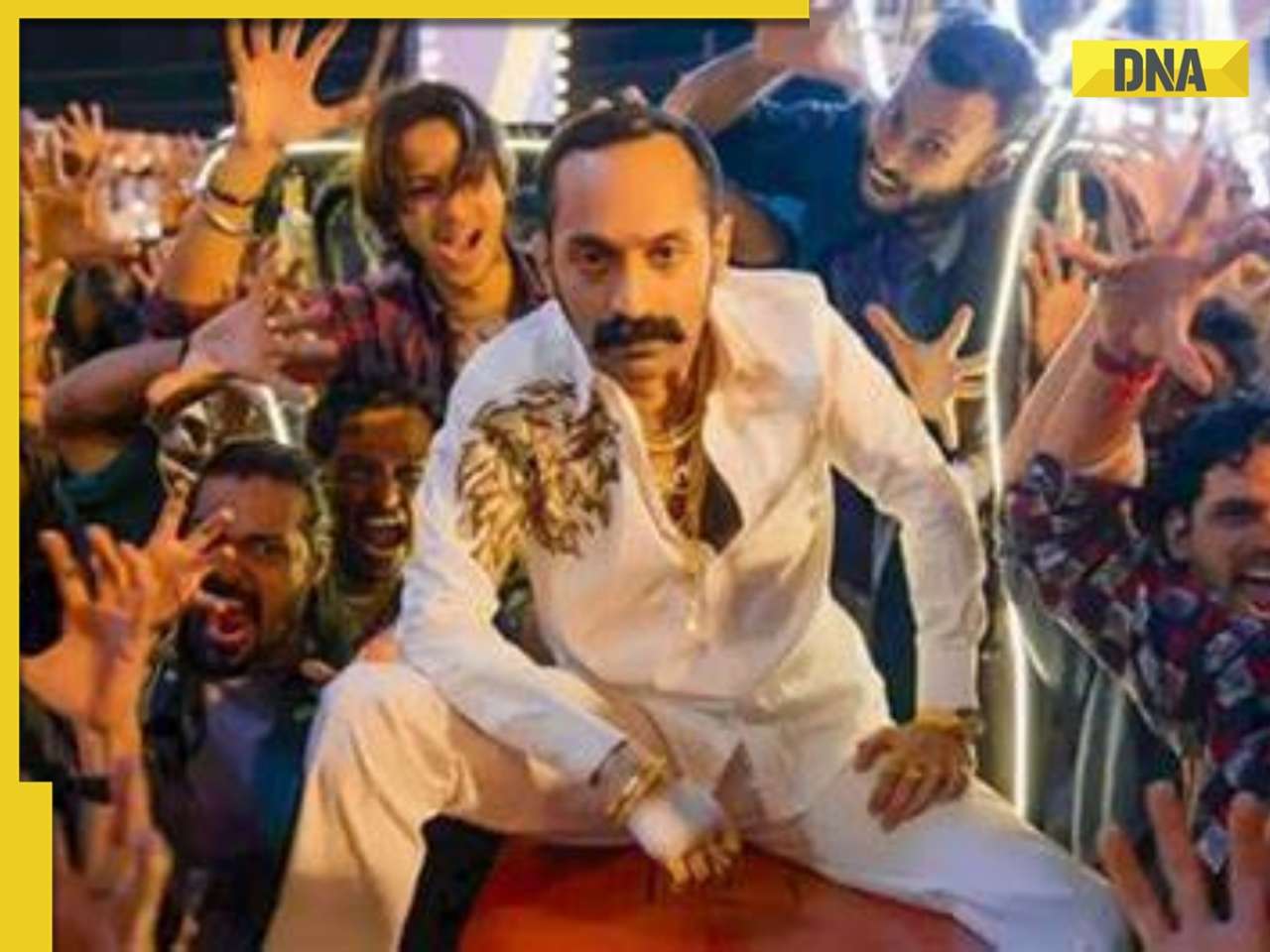
























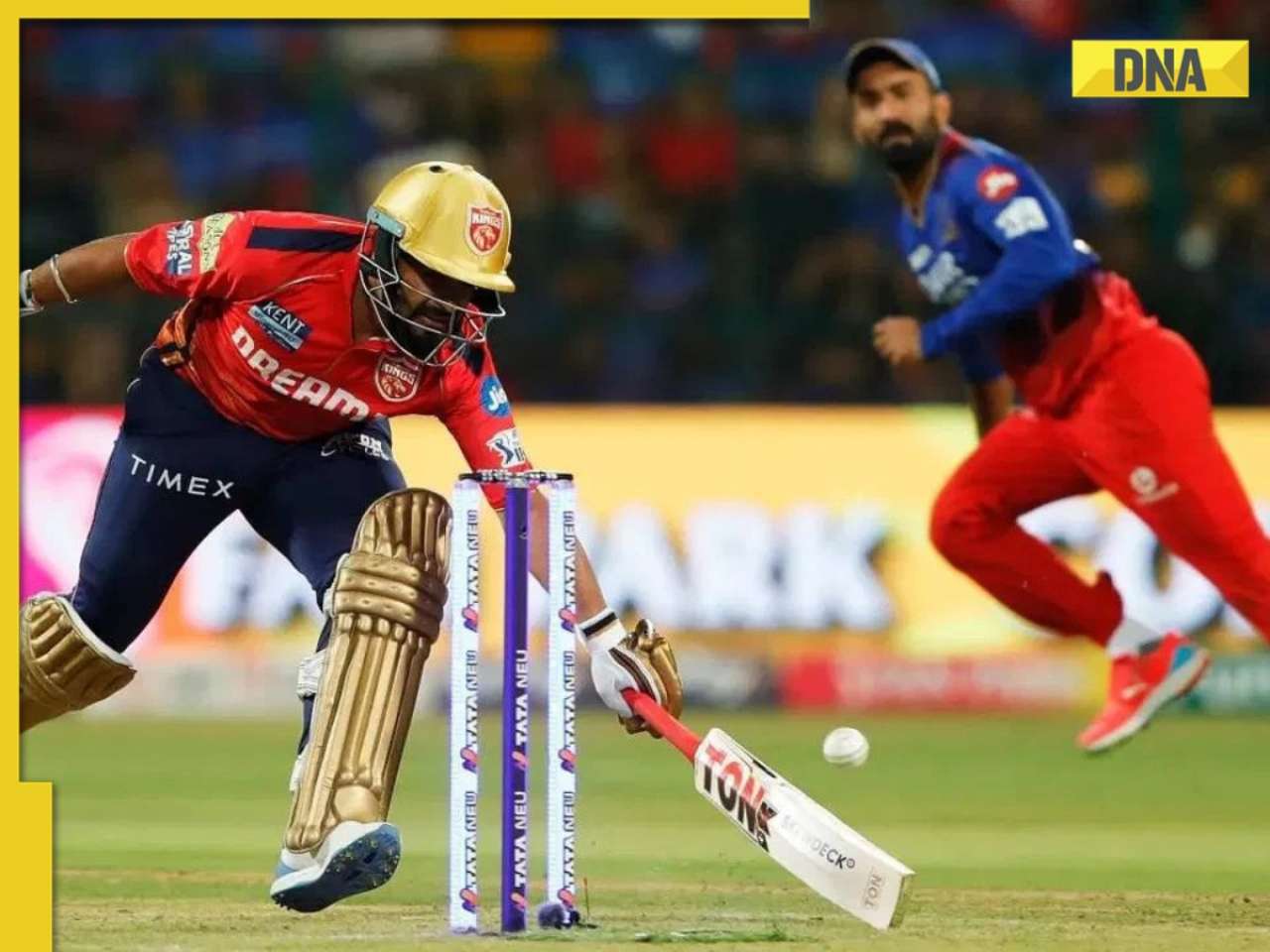
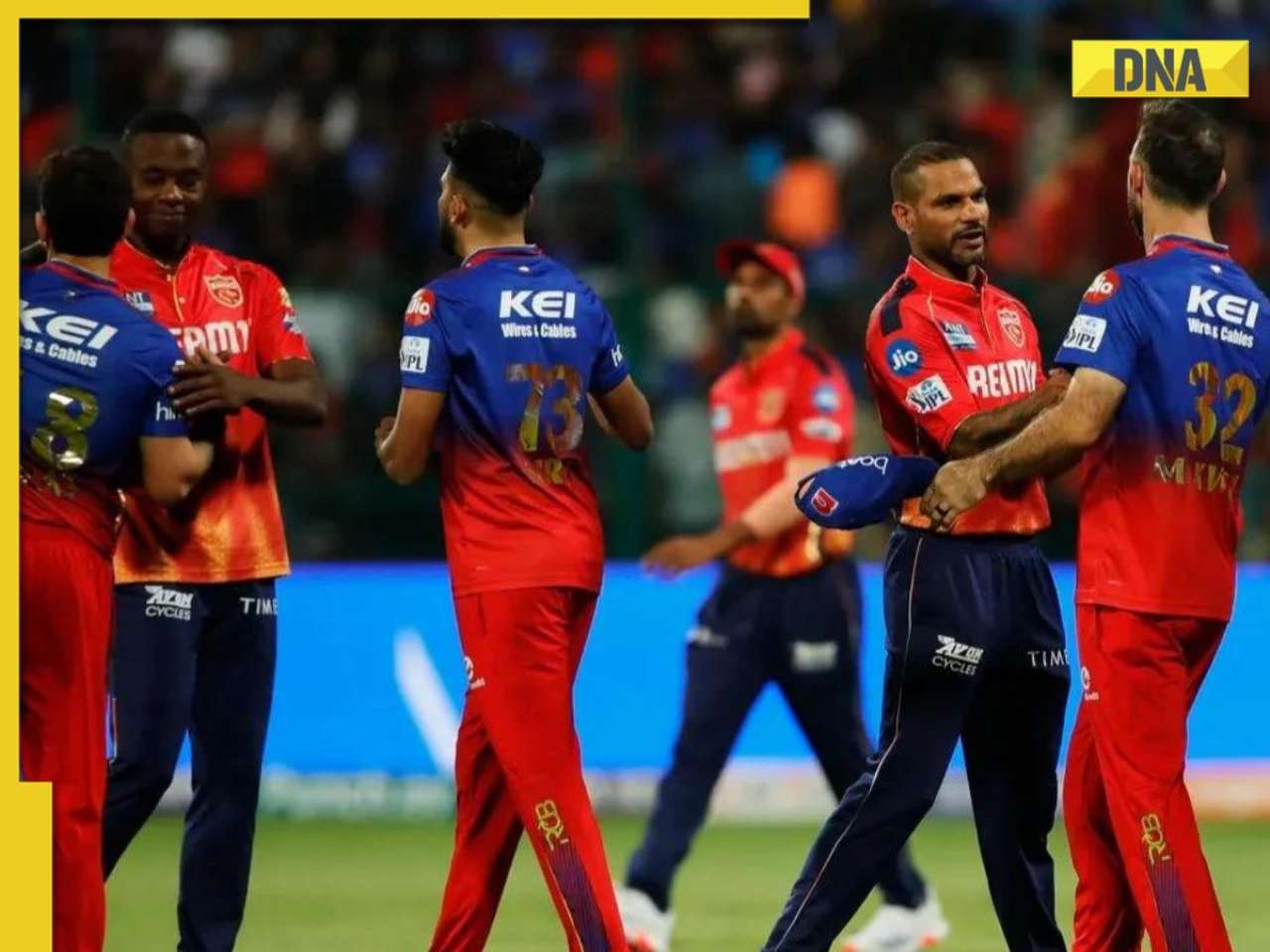

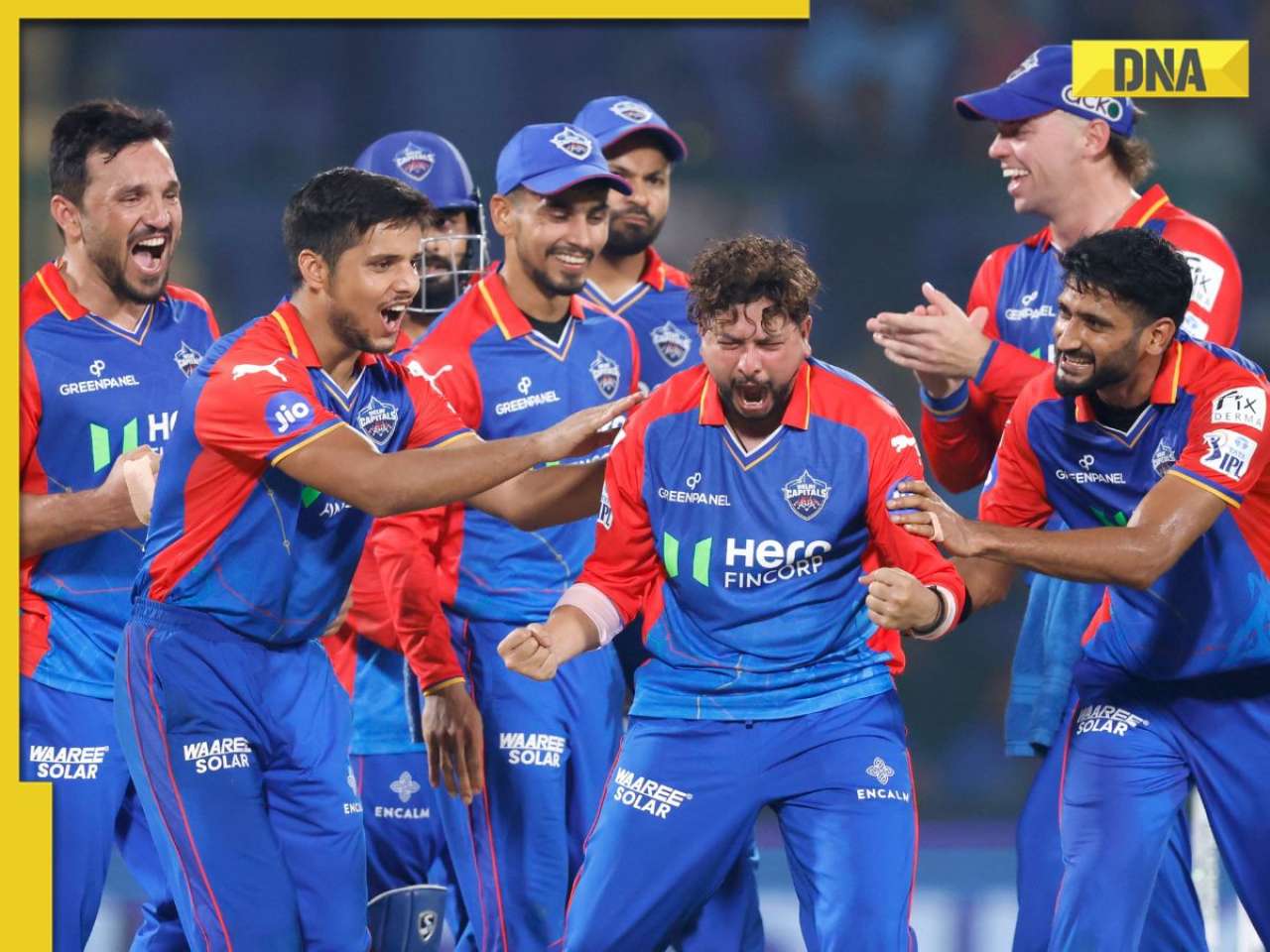
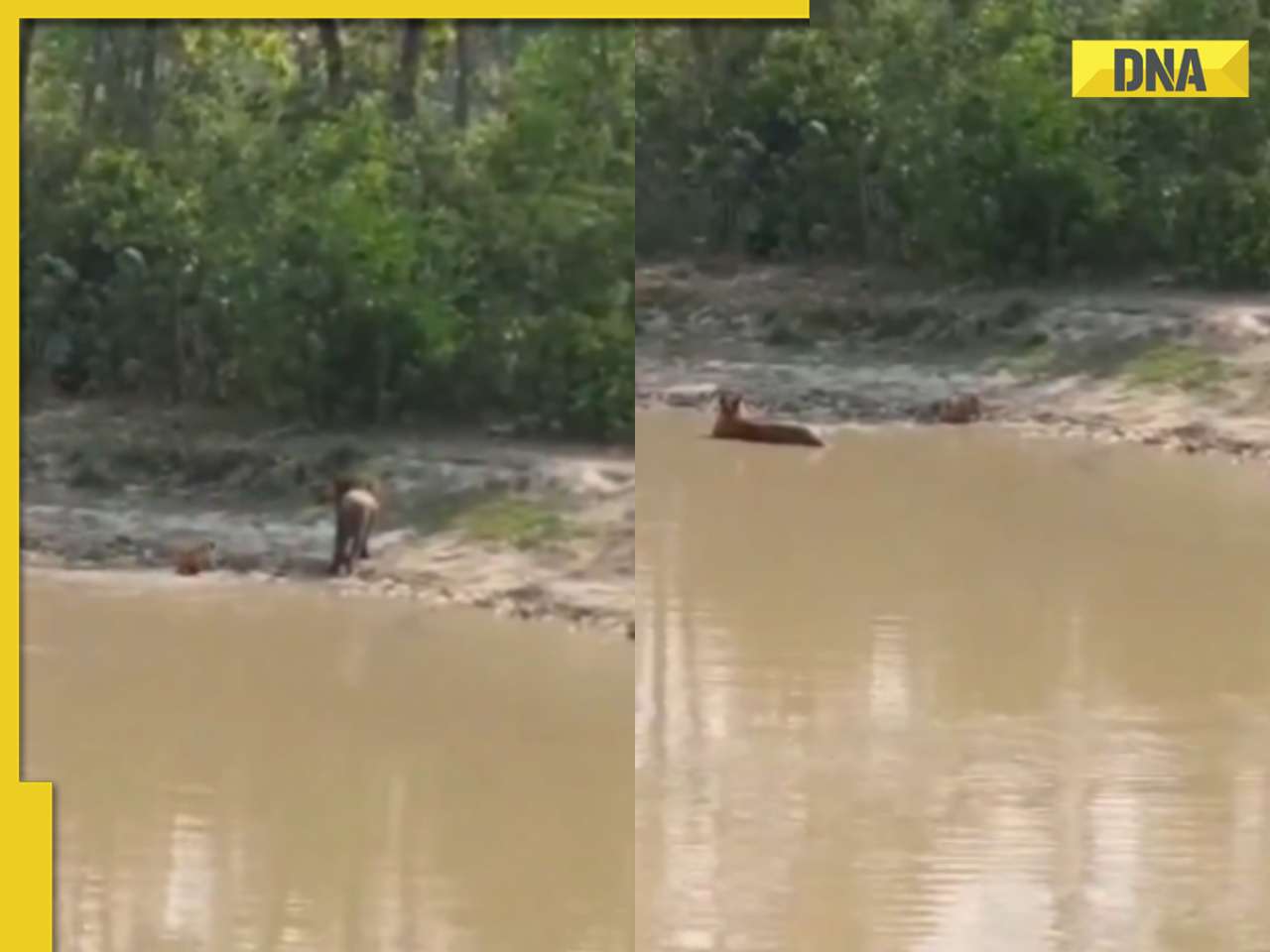

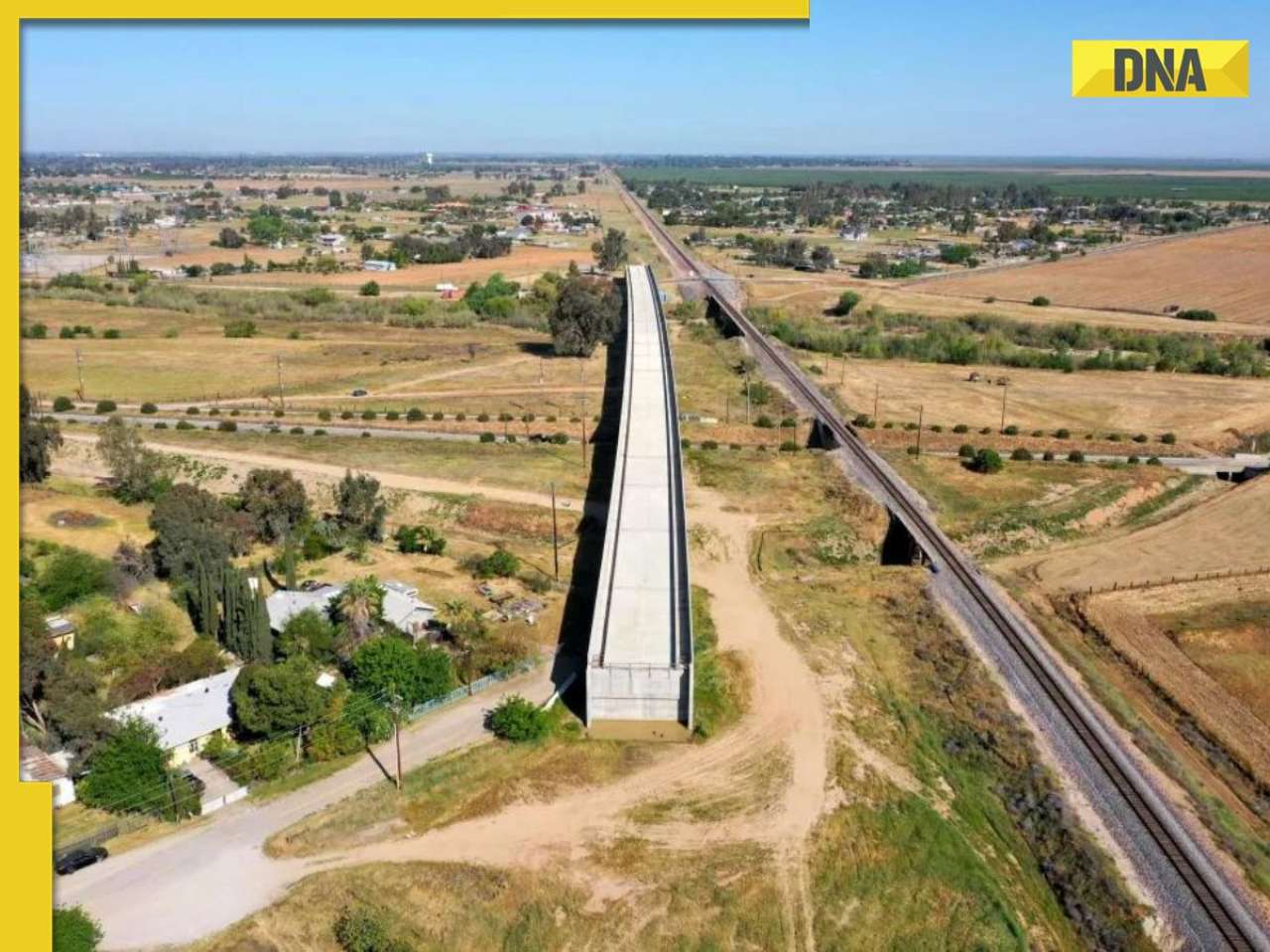


)




)
)
)
)
)
)